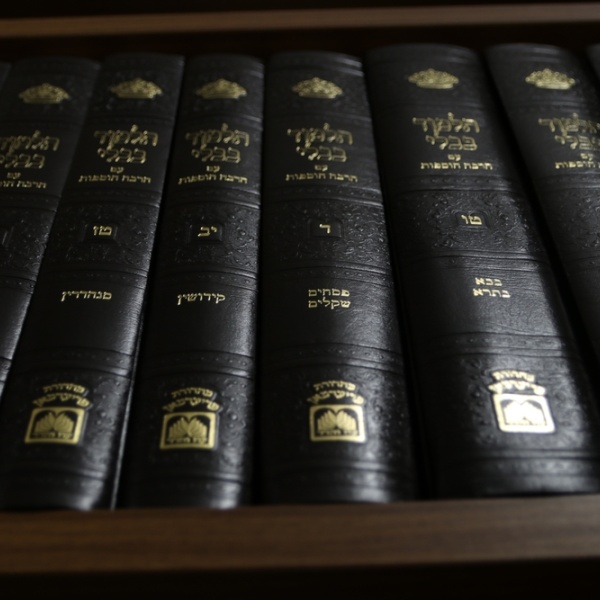
When opportunity knocks, answer – you may not get a second chance. Or to quote the language of our Sages “a closed door does not easily [re]open.” (Bava Kamma 80b) One must always be ready to immediately take advantage of opportunities that present themselves. My father z”l would often say that Mazal, can be read as an acronym for makom, place, zman, time and laasot, doing. Being in the right place at the right time is not enough, one must then “do” to have mazal. While there is a time for “due diligence” there are times when such must and should be dispensed with. The key to success is knowing the proper time for each.
The Gemara gives two specific examples of this dictum. Mar Zutra says it refers to semicha, positions of leadership in the community, be they rabbinic or any other. As many a politician or senior executive can attest often one gets only one chance to lead, and when passed over that chance may never arise again. The Gemara (Bava Metzia 85b) notes that Rebbe Yehuda HaNasi had wanted to give semicha to Shmuel but circumstances, unrelated to the giving of semicha itself, prevented such and it turns out that Shmuel never received semicha. (This explains why is he is referred to as Shmuel and not Rav Shmuel).
Following up on this theme Rav Ashi comments that “whoever is treated poorly is not readily treated well.” The Gemara even entertains the view of Rav Acha miDifti that “never will he be treated well”, commenting that while that may be true on an individual basis we do not go quite that far as a general rule.
It is very hard to change perceptions people have of you. Once people develop a negative view of someone, it takes lots and lots of work to turn those people around. Modern psychology has demonstrated such holds true even if there is evidence to support a more positive view. The “confirmation bias” – something all are susceptible to - leads us to interpret data based on our pre-conceived notions. If we see someone act in a morally questionable fashion those who like the person will interpret his actions favorably whereas those who already hold negative views of the person will interpret his actions in a most negative light. No wonder first impressions are so important.
This teaching is actually the second of three teachings of the children of Rav Pappa[1]. It is immediately followed by a seemingly unrelated teaching, both in topic and in genre. We move from a “philosophical” teaching about life in general to a legal ruling about the land of Israel. “One who purchases a home in the Land of Israel, can write the contract even on Shabbat.” Acquiring land in Israel is so important that it supersedes even the laws of Shabbat.
The Gemara finds this more than perplexing. As important as the Land of Israel is can it really be that one can violate the Shabbat to acquire land? Rava therefore explains that what the Gemara means[2] is that one can ask a non-Jew to write the contract on our behalf. “Even though asking a non-Jew [to violate Shabbat] is a violation of [the mitzva of] shevut, resting on shabbat, for the settling of the Land the rabbis did not [make a] decree.”
This is a very powerful teaching but seems to have little to do with ‘opening closed doors.’ Yet this teaching is an application of the preceding one. It is a legal application of a philosophical teaching.
As opportunity often knocks only once we must act quickly. When the opportunity to purchase land in the Land of Israel arises we must act and act now, Shabbat notwithstanding. Waiting a day to clinch a real-estate deal is often waiting a day too long.
The children of Rav Pappa lived some 300 years after the destruction of the Temple and buying land in Israel was little more than a dream. We who are living 1,900 years later have seen that dream come true and have been given the historic opportunity to purchase land in Israel.[3] The Gemara (Brachot 5a) comments that G-d gave the Jewish people three precious gifts; Shabbat, Israel and the world to come[4] and they are acquired only with great difficulty. Let us work hard and merit to enjoy these wonderful gifts.
[1] The Gemara is uncertain as to whether these are the teachings of Rabbi Ada bar Pappa, Rabbi Acha bar Pappa or Rabbi Chaninah bar Pappa.
[2] I find it instructive that the Gemara did not say what it meant i.e. leaving it to Rava to explain that writing means asking a non-Jew to write. The need for “oral law” to explain the "written law” impresses upon us the importance of the mitzva of settling the land of Israel and of the severity of the prohibition of amira lenochri, having a non-Jew perform work on our behalf on Shabbat. Having a non-Jew write on our behalf is as if we ourselves are writing which “we” may do to acquire land in Israel. Ironically, yishuv eretz Yisrael and amira lenochri are two laws that are neglected by many.
[3] Unfortunately for many this is not economically feasible.
[4] It is interesting to note that while the gift of Shabbat is given exclusively to the Jewish people - non-Jews are “prohibited” from observing Shabbat (Sanhedrin 58b) – the gift of the World to Come is available to all (Tosefta, Sanhedrin 13:1). In between stands the gift of Israel given to the Jewish people but open for all who accept G-d’s dominion.
